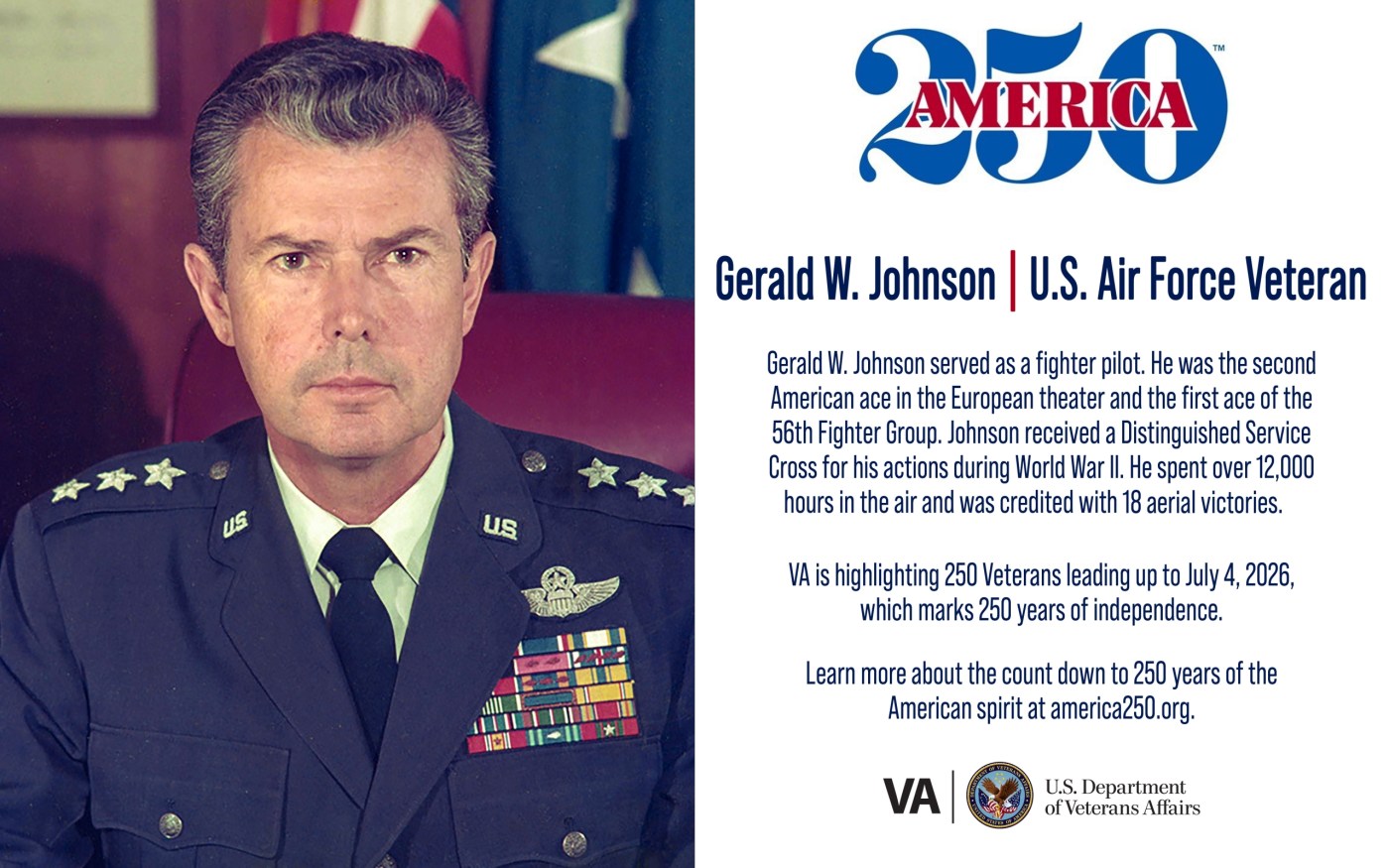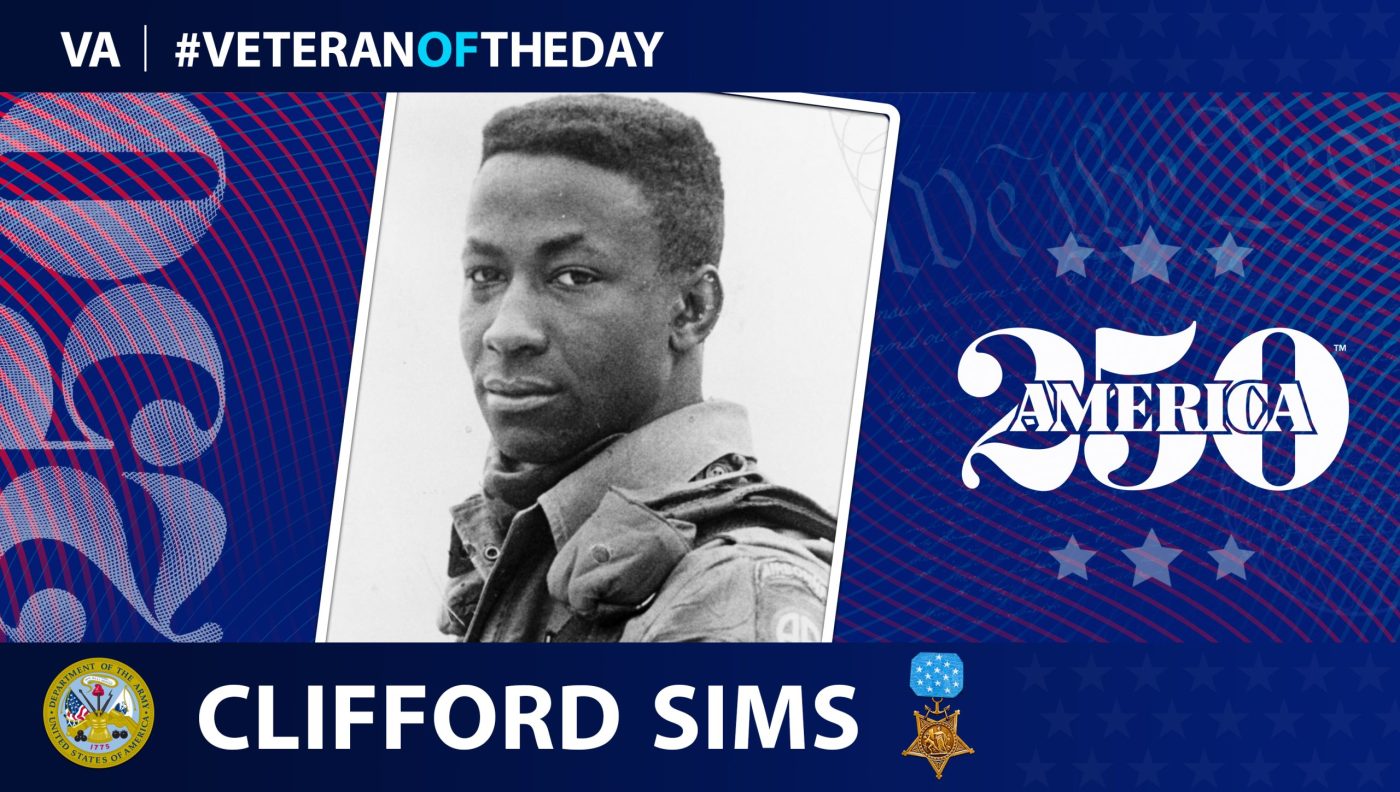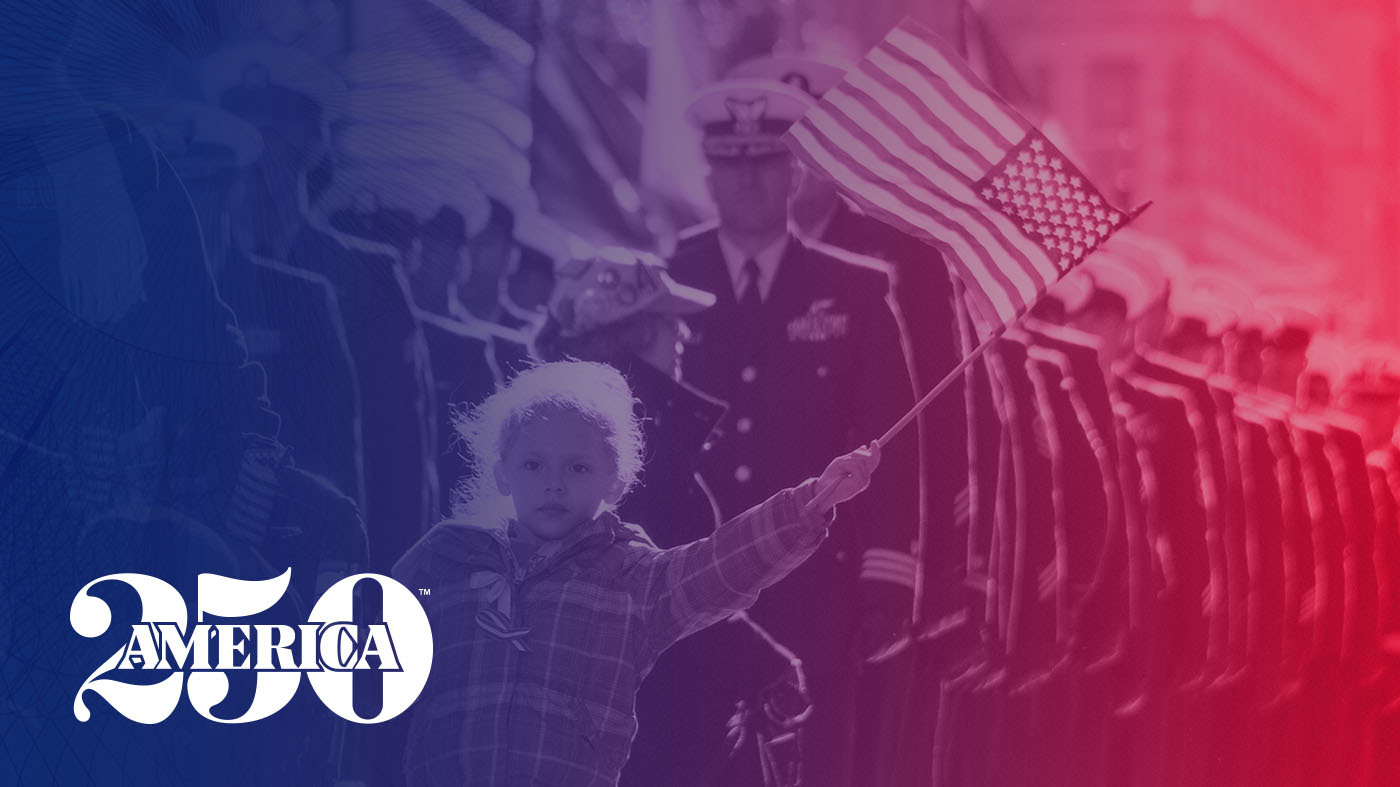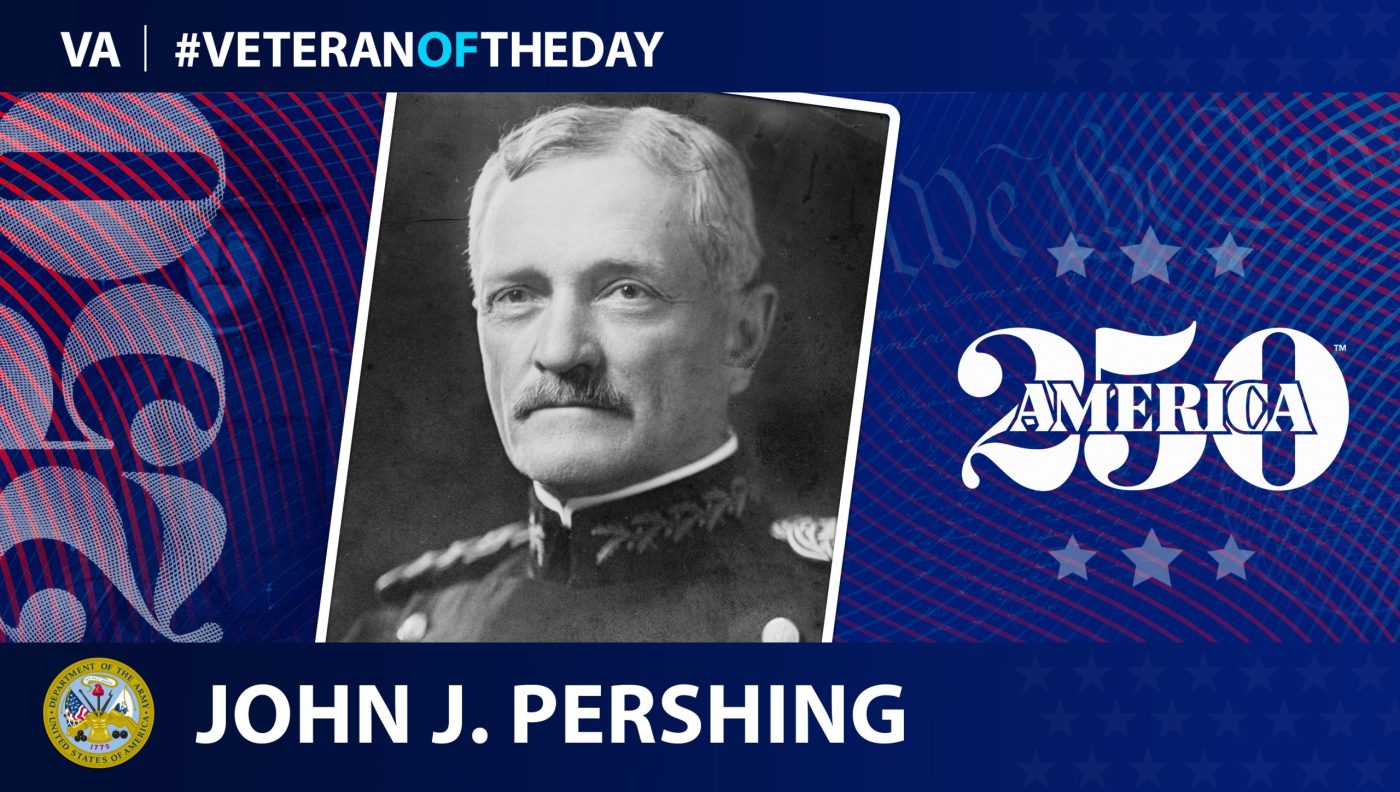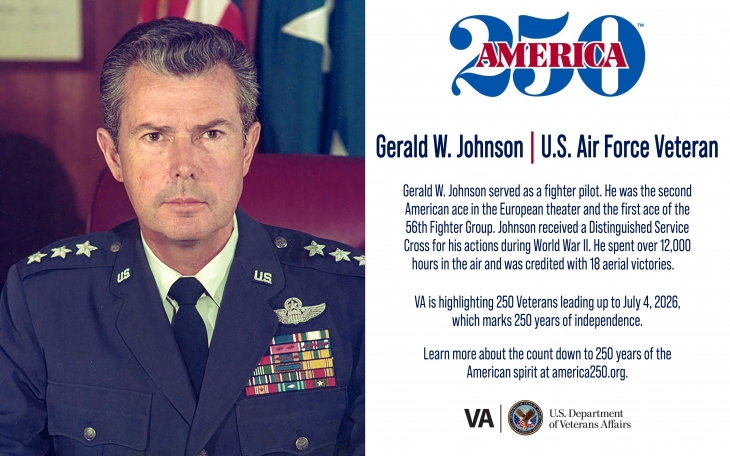
This week’s America250 salute is Air Force Veteran Gerald W. Johnson.
Gerald Walter Johnson was born in 1919 in Owenton, Kentucky. In 1941, Johnson put his college education on hold to answer the nation’s call to fight in World War II. Upon completion of the Aviation Cadet Program in 1942, the newly appointed second lieutenant was ready to fly with the 56th Fighter Group at Bridgeport, Connecticut. A year later, the 56th deployed to Europe, where Johnson demonstrated his skills flying the P-47 Thunderbolt.
Within the first eight months of his service, Johnson claimed the title of the first ace in the 56th and the second ace in the European Theater after shooting down five German aircraft. For his actions, Johnson quickly promoted to the rank of captain, and in 1944, to major. Johnson shot down 13 more aircraft and successfully flew 88 missions before the Germans captured him as a prisoner of war. The time Johnson spent in the prisoner of war camp, Stalag Luft I, did not weaken his love for flying. After the Red Army liberated the camp, Johnson returned to the 56th and assumed command of the 62nd Fighter Squadron.
When the war ended, Johnson returned to the U.S. and resumed working on his education. He graduated from Boston University in 1950, the National War College in 1963 and the Command and General Staff School in Fort Leavenworth. Over the course of his service, Johnson served as commanding officer of many divisions and groups including the 508th Strategic Fighter Wing (1954–1956), 4080th Strategic Reconnaissance Wing (1956–1957), 95th Bombardment Wing (1963–1965), 305th Bombardment Wing (1965–1966), 825th Strategic Aerospace Division (1966–1968), 2nd Air Force at Barksdale Air Force Base (1968–1969), and the 1st Strategic Aerospace Division (1969).
During the last few years of the Vietnam War, Johnson served as commander of 8th Air Force at Andersen Air Force Base in Guam from 1971–1973. He entered combat in 1972 when he led the bombing campaign, later known as Operation Linebacker, in North Vietnam. When the war ended, Johnson accepted the assignment of inspector general of the Air Force at the Pentagon. In 1974, after a long and successful career, Johnson retired from the military. He also wrote an autobiography titled “Called to Command: WWII Fighter Ace’s Adventure Journey.”
Throughout his exceptional career, Johnson received several awards including a Distinguished Service Cross, an Air Force Distinguished Service Medal with bronze oak leaf cluster, a Legion of Merit with two bronze oak leaf clusters, a Distinguished Flying Cross with four bronze oak leaf clusters, a Vietnam Service Medal with four bronze campaign stars, an Air Force Commendation Medal and an Air Force Longevity Service Award with silver and two bronze oak leaf clusters.
Johnson’s Distinguished Service Cross reads as follows: “Captain Johnson, by his repeated acceptance of heavy odds and by his aggressive spirit in the attack, has been an inspiration to his fellow pilots and reflects the highest credit upon himself and the armed forces of the United States.”
Throughout his service, Johnson spent over 12,000 hours in the air and was credited with 18 aerial victories.
Johnson passed away in September 2002. He was laid to rest at the Arlington National Cemetery in Arlington, Virginia.
We honor his service.
America250
VA is highlighting 250 Veterans leading up to July 4, 2026, which marks 250 years of independence. Learn more about the count down to 250 years of the American spirit at https://america250.org/.
Contributors
Writer: Paulina Riffey
Editors: Annabelle Colton, Merrit Pope
Fact Checker: Giacomo Ferrari
Graphic Designer: Kiki Kelley
Topics in this story
More Stories
Today's America250 and #VeteranOfTheDay honors Army Veteran Clifford Sims, who was posthumously the Medal of Honor.
America250 wants you to share your story. We want to hear the story of your service and your reflections on our nation’s past, present and future.
Today's America250 and #VeteranOfTheDay is Army Veteran John J. Pershing, who became General of the Armies of the United States, the highest rank possible for any member of the United States Armed Forces.

